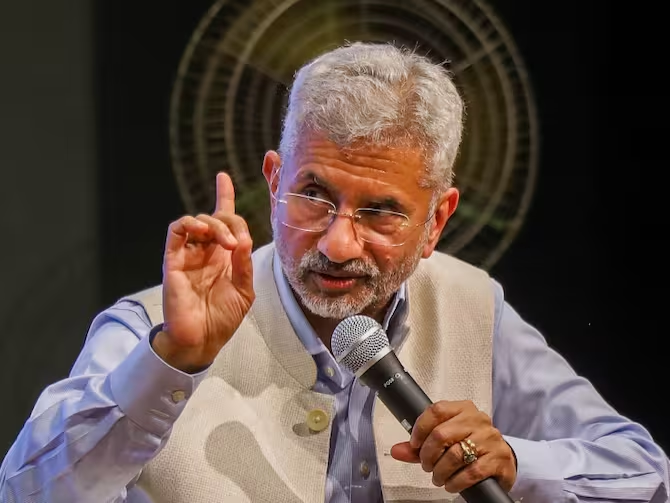
When nations violate agreements, damage to trust and confidence is immense: Jaishankar’s dig at China
text_fieldsDhaka: In a veiled dig at China, External Affairs Minister S Jaishankar said on Friday that when nations disregard the legal obligations or violate longstanding agreements, the damage to trust and confidence is immense.
"When nations disregard the legal obligations or violate long-standing agreements. As we have seen, the damage to trust and confidence is immense," he said, apparently referring to China's violation of border pacts with India.
In order to establish a sustainable global system, it is crucial to abide by laws, follow etiquette, and honor regulations, all of which come together as a natural point of convergence, news agency PTI reported.
India has strongly criticized China for deploying an enormous amount of soldiers and displaying hostile actions along the Line of Actual Control in the eastern region of Ladakh.
These actions go against agreements on managing the border. India has emphasized to China that their breach of the border agreements has greatly damaged the foundation of their relationship, and any matters concerning the boundary must be resolved within the bounds of the current accords.
Addressing the 6th Indian Ocean Conference here in the Bangladeshi capital, Jaishankar also said a significant shared concern through the Indian Ocean is that of unsustainable debt generated by unviable projects.
"There are lessons from the last two decades that we ignore at our peril. If we encourage opaque lending practices, exorbitant ventures and price points that are unrelated to the market, these are bound to bite us back sooner rather than later. Especially so when sovereign guarantees have been proffered, not always with due diligence. Many of us in the region are today confronting the consequences of our past choices," he was quoted by PTI in its report.
"It is therefore essential that all of us take the long view of our cooperation, rather than a tactical one of our interests," he said.
The inefficient initiatives undertaken by China in Sri Lanka, such as the Hambantota port, that were acquired by Beijing through a debt exchange for a lease period of 99 years, have received severe scrutiny.
Sri Lanka's indebtedness includes a portion of 10% owed to China, who allegedly refused to provide a debt reduction.
He suggested that instead of repeating and reiterating, this was an opportune moment to reflect and reform. According to him, the Indo-Pacific is a tangible concept that is continually increasing in significance.
"It is a statement of our contemporary globalisation and underlining that we are getting past the framework of 1945. There are obviously nations that have a vested interest in perpetuating the past. As indeed they have in larger international relations, including the structure of the United Nations," he said.
The sixth edition of the Indian Ocean Conference is being attended by President of Mauritius Prithvirajsing Roopun, Vice President of Maldives Faisal Naseem, Prime Minister of Bangladesh Sheikh Hasina, and several ministers from across the world.























